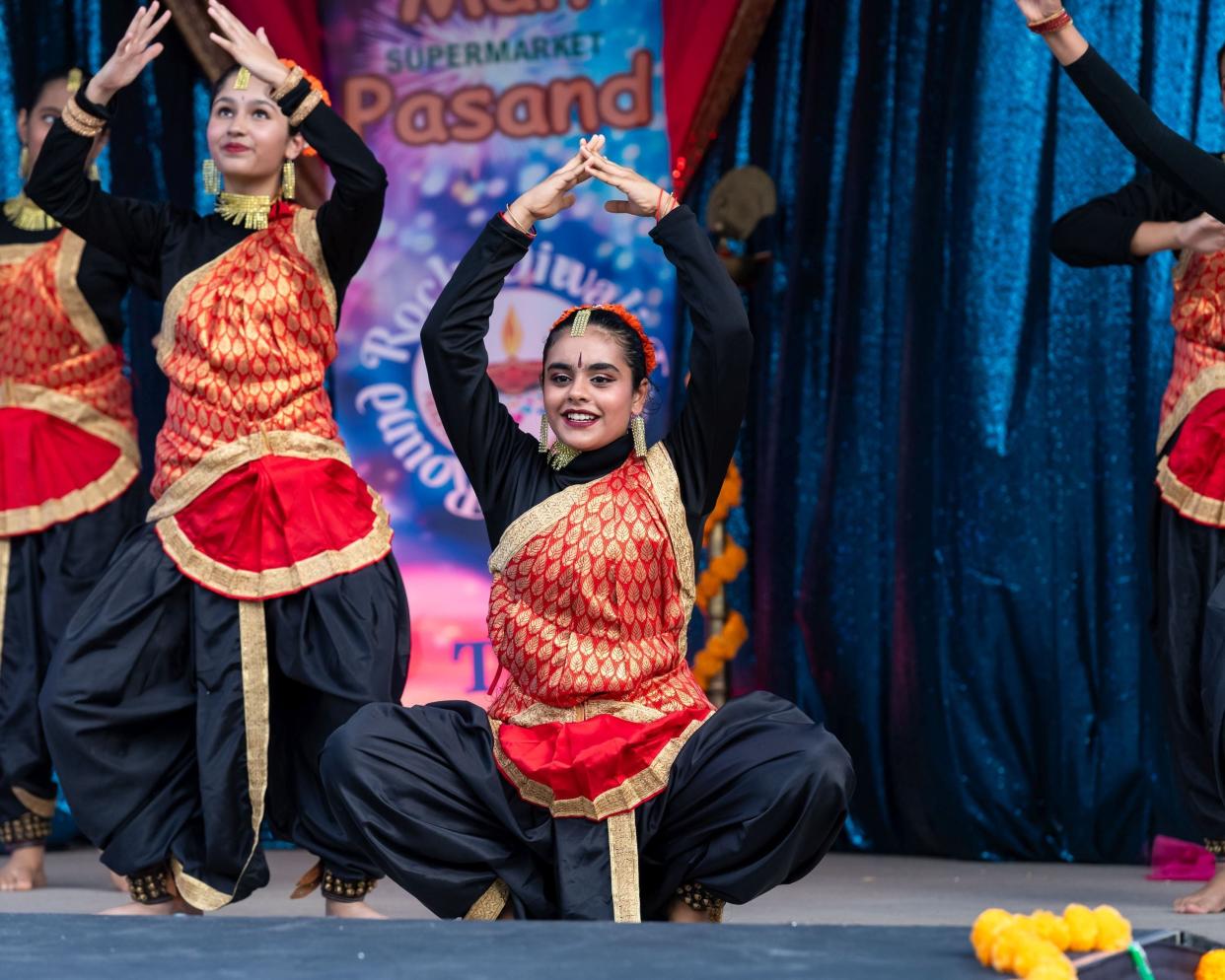Faith: A time for celebration in many different traditions

- Oops!Something went wrong.Please try again later.
"For everything there is a season, and a time to every purpose under heaven." — Ecclesiastes 3:1
This notion, made popular by the song “Turn, Turn, Turn” by the Byrds way back in the times before Austin became the 10th largest city in the United States, is certainly true in our city. Rarely a month goes by that there isn’t a celebration. Feast days are often a spiritual practice and often become part of the culture.
The apostle Paul said, “No one is to act as your judge in regard to food or drink or in respect to a festival or a new moon or a Sabbath.” (Colossians 21:6.)
Paul wrote this letter while in prison and in changing times where some Christians were challenging old Jewish traditions. Now, with globalization and diversity, we have the opportunity to participate in a wide variety of observances. Times continue to change.
The harvest celebration is common to most religious and cultural traditions. The Old Testament commands the people to “…observe the Feast of the Harvest of the first fruits of your labors from what you sow in the field, also the feast of the ingathering at the end of the year when you gather in the fruits your labor.” (Exodus 23:16)
From this passage, we see that the tradition of Thanksgiving began long before the Pilgrims and even thousands of years before biblical times. The indigenous peoples’ tradition of thankfulness for crops is thousands of years old — 12,000 to 48,000 or more years old in America. Harvest festivals were held in the Americas in August, September and October of every year, from around 10,000 B.C. or earlier. In modern days, we celebrate the Austin Powwow and American Indian Heritage Festival, typically held in November each year.
The Hindus also have a fall holiday. Diwali usually takes place in October or November depending on the Hindu calendar. Diwali, the Hindu Festival of Lights — a celebration of good over evil was celebrated in the Austin area in friendly events. During this holiday, all buildings are adorned with many Diyas, which are oil lamps. It is believed that the lamps guide Lakshmi, the goddess of wealth, to the homes of Hindus. Hindus thank Lakshmi by opening the windows of their houses and by drawing images of lotus flowers. They also draw colorful patterns on the floor called Rangolis. During Diwali, Hindus give and receive gifts — especially sweets.
In Austin, each year, Interfaith Action of Central Texas hosts a Day of Thanks attended by participants of all faiths. It's 39th Annual Interfaith Day of Thanks Service and Celebration happened the Sunday before Thanksgiving.
As the seasons change, so do the festivals. Kwanzaa is week-long observance of African American heritage, culture, and community, observed through evening meals and family gatherings. African Americans celebrate from Dec. 26 through Jan. 1 with music, drumming, and storytelling literature. A Kwanzaa Celebration with Elizabeth Kahura is also scheduled for 1:30 p.m. Saturday, Dec. 9 at Austin Public Library's Spicewood Springs Branch. Elizabeth Kahura is a Kenyan-born storyteller, drummer, dancer and teacher of a diverse range of African traditions.
For Christians Dec. 25 is a time to celebrate Jesus’ birth. In Austin, we uniquely celebrate with the Zilker Tree, which will be lighted nightly through Jan. 1 and the Trail of Lights, which open Dec. 8-23.
For Jews, Hanukkah celebrates light in the darkness. The eight-night festival begins the evening of Dec. 7. Shalom Austin, the Jewish community center, and local synagogues will host a variety of events throughout the week.
For the Chinese, the New Year is the most important holiday. The annual commemoration is cultural rather than religious. For 2024, the new year marks the beginning of the year of the dragon and will be celebrated Feb. 10, 2024. Chinatown in Austin will offer a wide variety of traditional and family friendly activities.
The Songkran and Thingyan is a water festival in April that marks the beginning of the new year in Buddhism and marks the beginning of the traditional Thai and Burmese new years. The water festival includes pouring of water on Buddha images and Buddhist Monks to wash away the past year's misgivings and bad luck.
Of course, we have Easter and Passover and other holidays. This list is only the beginning of the activities for the calendar year.
As Solomon said, “To everything there is a season … a time to weep, and a time to laugh; a time to mourn, and a time to dance… I know that there is no good in them, but for a man to rejoice, and to do good in his life. And also that every man should eat and drink, and enjoy the good of all his labor, it is the gift of God.” (Ecclesiastes 3)
I believe God granted us the gift of gladness and merriment so we all could experience the joy of this life, regardless of our traditions.
These appointed days of celebration by all cultures and religions offer opportunities to share our joy with all who live in our city. The diversity of religious and cultural traditions in Austin reveal that we all have one thing in common: There is a time for everything, and some days are important ones.
Diane Owens Prettyman is a parishioner at All Saints Episcopal Church. She serves as a lector, president of the St. Catherine’s Chapter of the Daughters of the King, and a member of their Central Texas Interfaith Core Team.
This article originally appeared on Austin American-Statesman: Faith: Christmas, Hanukkah, Diwali, Kwanzaa

